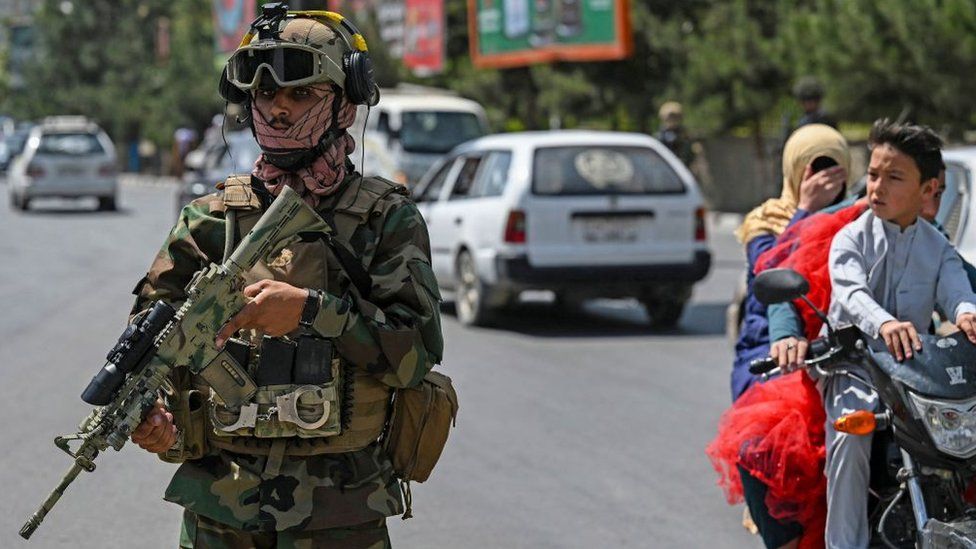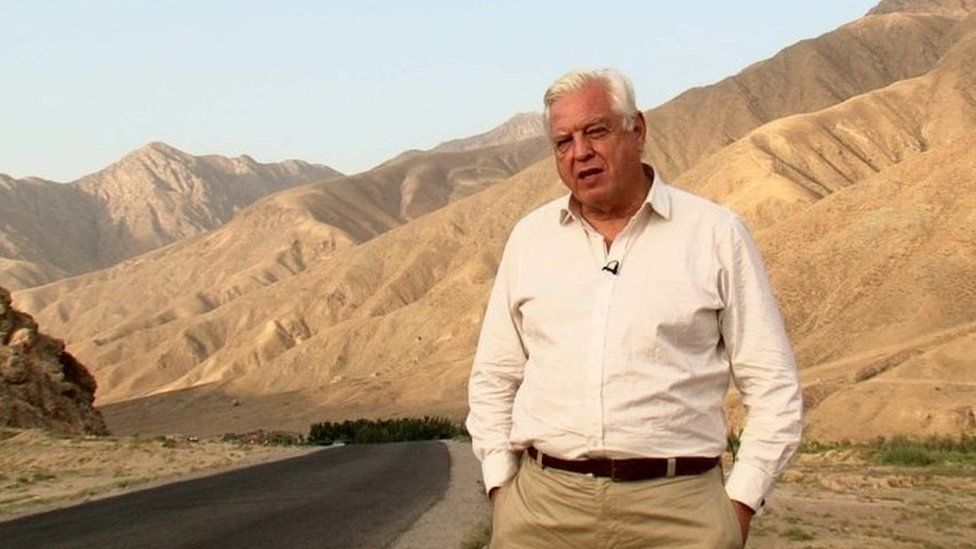As foreign forces end their 20-year campaign, our world affairs editor considers what has been achieved.

image sourceAAMIR QURESHI
Right across the globe, countries which have traditionally relied on American backing are suddenly starting to wonder if they should get themselves some re-insurance.
Taiwan, which is almost daily subject to threats of invasion from China, is particularly worried. South Korea, Japan, Western Europe, and Britain are all wondering if the American commitment to them could evaporate as fast as the commitment to Afghanistan has.
Only four months ago, President Joe Biden sounded confident and reassuring: “We will not conduct a hasty rush to the exit. We’ll do it responsibly, deliberately and safely. And we will do it in full co-ordination with our allies and partners.”
That isn’t what happened. And a country which depended on American and Western support for an entire generation has suddenly found itself abandoned.
When the Taliban were thrown out in November 2001 by a coalition of moderate Afghan mujahideen, with Western support, an era of relative prosperity and personal freedom began. Kabul, and much of the country as well, are almost unrecognisable now after the gross poverty which five years of Taliban rule brought.
There’s certainly been huge corruption, right from the top: but there was also quiet growth and an absence of fear. Infant mortality dropped by 50%.
The war against the Taliban had dwindled to a security operation. Afghan soldiers, police and civilians were still suffering, but many fewer Western soldiers were being killed: 11 last year. There were far more US troops stationed in Britain than in Afghanistan. A smallish Western force of around 2,500 kept the Taliban down and the country stable.
It was the announcement of the deadline for pulling out the Western troops that led to the sudden Taliban surge and the capture of Kabul.

Everything is uncertain now in Afghanistan. Schools and colleges where girls were getting a good education have virtually all closed down. Reports from across the country say that women are scarcely to be seen in the streets now, just as happened when the Taliban were last in power, from 1996 to 2001.
There are frequent reports of local atrocities: the murder of the folk-singer Fawad Andarabi in Baghlan province, for instance. Afghanistan’s towns and cities have echoed to music for 20 years. Now it has been banned by the Taliban.
Some supporters of the previous government of President Ashraf Ghani are starting to negotiate with the Taliban leadership, and it is possible that a new coalition will start to emerge which will be a little more moderate than the Taliban regime which ran the country before. But the real power outside Kabul and the other main cities will lie with groups of pro-Taliban warlords, of the kind who lynched Fawad Andarabi for being a folk-singer.
The likelihood is that the new Taliban regime will be faced with two separate civil wars: one against the Islamic State-Khorasan – which carried out the bombing at Kabul airport last week and regards the Taliban as religious sell-outs – and one against the resistance movement of supporters of the old government.
These forces are based in the impregnable Panjshir Valley, 100 miles north-east of Kabul. President Biden’s abrupt withdrawal means that peace, for the people of Afghanistan, is further away than ever.